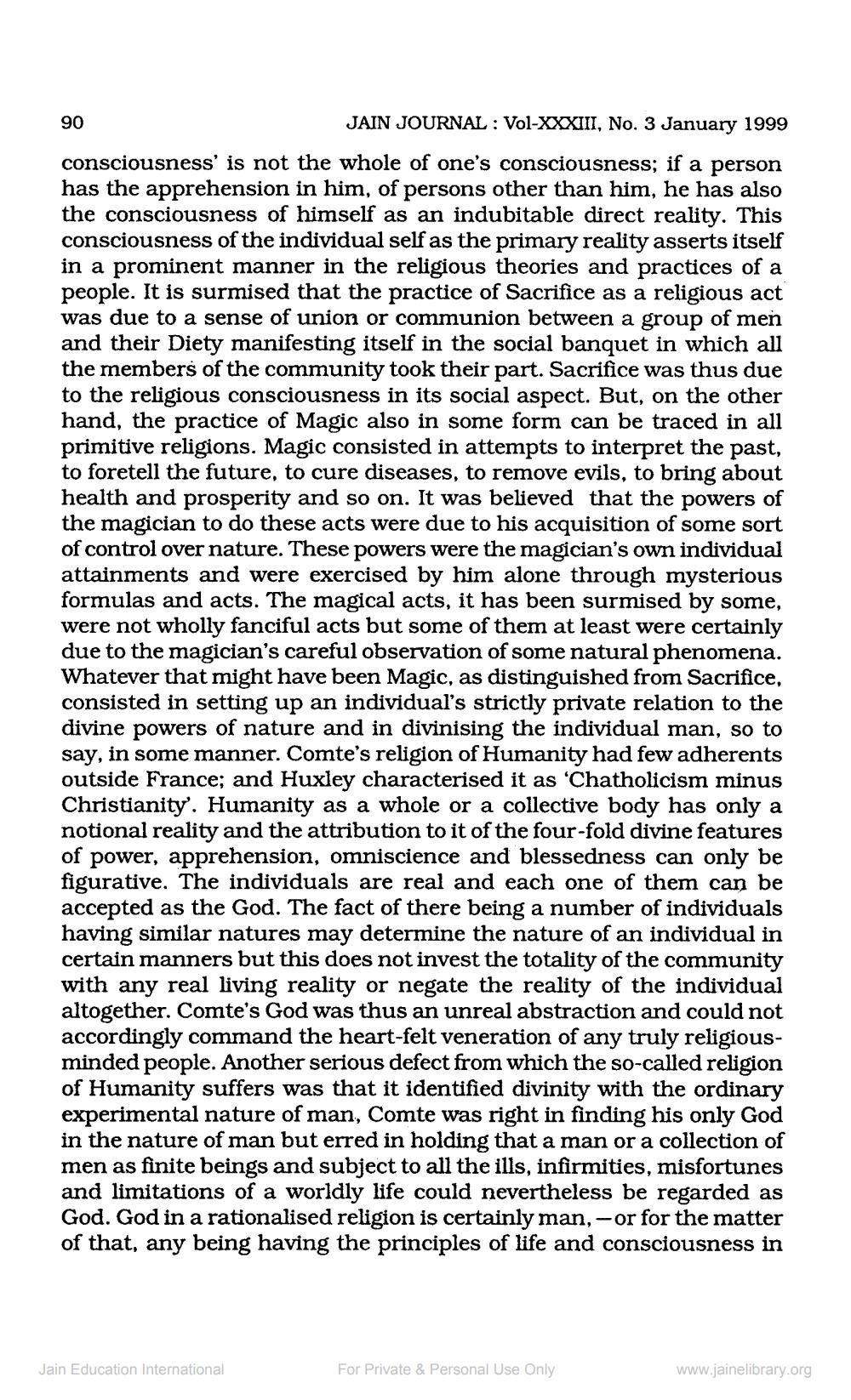________________
JAIN JOURNAL: Vol-XXXIII, No. 3 January 1999 consciousness' is not the whole of one's consciousness; if a person has the apprehension in him, of persons other than him, he has also the consciousness of himself as an indubitable direct reality. This consciousness of the individual self as the primary reality asserts itself in a prominent manner in the religious theories and practices of a people. It is surmised that the practice of Sacrifice as a religious act was due to a sense of union or communion between a group of men and their Diety manifesting itself in the social banquet in which all the members of the community took their part. Sacrifice was thus due to the religious consciousness in its social aspect. But, on the other hand, the practice of Magic also in some form can be traced in all primitive religions. Magic consisted in attempts to interpret the past, to foretell the future, to cure diseases, to remove evils, to bring about health and prosperity and so on. It was believed that the powers of the magician to do these acts were due to his acquisition of some sort of control over nature. These powers were the magician's own individual attainments and were exercised by him alone through mysterious formulas and acts. The magical acts, it has been surmised by some, were not wholly fanciful acts but some of them at least were certainly due to the magician's careful observation of some natural phenomena. Whatever that might have been Magic, as distinguished from Sacrifice, consisted in setting up an individual's strictly private relation to the divine powers of nature and in divinising the individual man, so to say, in some manner. Comte's religion of Humanity had few adherents outside France; and Huxley characterised it as 'Chatholicism minus Christianity'. Humanity as a whole or a collective body has only a notional reality and the attribution to it of the four-fold divine features of power, apprehension, omniscience and blessedness can only be figurative. The individuals are real and each one of them can be accepted as the God. The fact of there being a number of individuals having similar natures may determine the nature of an individual in certain manners but this does not invest the totality of the community with any real living reality or negate the reality of the individual altogether. Comte's God was thus an unreal abstraction and could not accordingly command the heart-felt veneration of any truly religiousminded people. Another serious defect from which the so-called religion of Humanity suffers was that it identified divinity with the ordinary experimental nature of man, Comte was right in finding his only God in the nature of man but erred in holding that a man or a collection of men as finite beings and subject to all the ills, infirmities, misfortunes and limitations of a worldly life could nevertheless be regarded as God. God in a rationalised religion is certainly man, -or for the matter of that, any being having the principles of life and consciousness in
90
Jain Education International
For Private & Personal Use Only
www.jainelibrary.org




